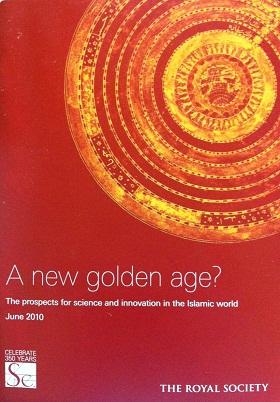Using AI to control energy for indoor agriculture
30 September 2024
Published online 30 April 2012

How often does a nation get to rebuild its society? Following the ousting of long-time president Mubarak in March 2011, many Egyptians were hopeful that a root and branch reformation of Egyptian governance would spur an economic and cultural revolution. While much of popular optimism has turned to frustration in recent months, many scientists still contend that encouraging science and innovation is one of the best ways to stir up a country that has stagnated for over 30 years.
During BioVision 2012, a roaming international science forum held this year at Bibliotheca Alexandrina in Egypt from 22–25 April, the UK's Royal Society co-hosted a discussion on the future of science, technology and innovation (STI) in Egypt — the Arab world's most populous country.
The Egyptian spend on scientific research has hovered around 0.2% of GDP for nearly 30 years, far below the world average of 1.2% or even the sub-Saharan average of 0.3%. Funds available to researchers based outside the bigger cities are even rarer. "We had some distressing experiences when we ventured away from Cairo and into Upper Egypt," says Michael Bond, the lead researcher and author of the Egypt case study in the Atlas of Islamic World Science and Innovation project.
Maged El-Sherbiny, president of the Academy of Scientific Research and Technology in Egypt, agreed funding was far below what was acceptable in this time and age. "We managed to raise it this year to 0.4%, which is still inadequate but it is the start of a gradual increase." Ideally, it should be above 1% at least, he adds, and preferably reach 2%.
But Hassan Azzazy, a chemist at the American University of Cairo, doesn't see a lack of funding as a bottle neck to progress. "There are many sources of funding, from the Gulf States or the European Union or even local NGO's. The real problem comes with the patent requests that come with this funding. There are always serious strings attached."
Most funding bodies, argues Azzazy, want to take full ownership of any commercial exploitation, leaving the researchers out of the loop. He stresses that young scientists need to have an entrepreneurship attitude and to step outside their comfort zones to address societal problems. "We need to be exporting high tech goods in the future, not just oranges and gas."
Poor education may be limiting the opportunities that young researchers have in securing funds or in producing cutting-edge science.
"Egypt probably has more students in higher education than any other country in the Middle East and North Africa," says Bond. The percentage of students who opt for science majors has been decreasing sharply over the past few years, reaching 30% in 2009, a worrying trend for a country hoping to promote science and innovation, he adds.
El-Sherbiny agreed that young people see business and economics as preferable career choices, not science, and mainly owing to a perception that science studies offering poor prospects.
"Egypt has 14.7 million students. It's a huge challenge, which government can take care of all of those?" says El-Sherbiny.
"I work in my lab with researchers from universities from all over Egypt and, in my experience, these students are smart and well-educated. The only problem they have is they have been held back by their professors," says Azzazy. "Once they are given ownership of their work they perform very well and are able to produce great results."
Bond, who has been working on the Atlas project since 2010, quickly added that the image was not completely bleak. "When I came back [to Egypt] after the revolution, I saw a dramatic change in the scientists and hope to conduct research useful to develop their country."
The Royal Society also updated those in attendance on a case study into the state of science in Egypt as part of the Atlas of Islamic World Science and Innovation project. Bond expects the Egypt report to be ready in the coming weeks.
"The Atlas was conceived in 2009 by the Organization of Islamic Countries (OIC) and the Royal Society to provide an overview of science and innovation across the region, with detailed snapshots of certain countries," said Bond. "It is authoritative but accessible to anyone interested in scientific development of their country."
doi:10.1038/nmiddleeast.2012.63
Stay connected: